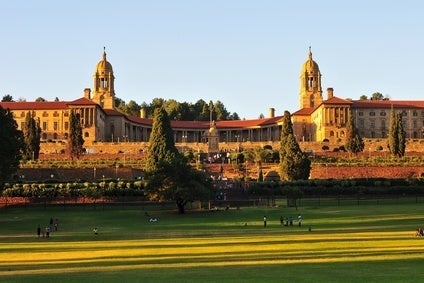
South Africa’s Department of Labour says all parties in the country’s protracted metalworking strike have accepted wage proposals, but divisions still remain concerning future bargaining methods.
The walkout – orchestrated by the National Union of Metalworkers of South Africa (NUMSA) – now risks spilling over into its fifth week as the union’s 220,000 employees’ decision to down tools knocks on to automotive suppliers and carmakers.

Discover B2B Marketing That Performs
Combine business intelligence and editorial excellence to reach engaged professionals across 36 leading media platforms.
Both the Metal and Engineering Industries Bargaining Council [MEIBC] and NUMSA appear to have agreed on wage increases of 10% for the next three years, but have apparently stalled on employers’ insistence on no further negotiations at plant level.
Employers want a ‘peace clause’ or a Section 37, designed to ensure industrial harmony for a fixed period with MEIBC general secretary, Thulani Mthiyane, telling just-auto, the device is a way of avoiding negotiating in two forums.
“Everything else has been accepted apart from the peace clause,” South Africa Department of Labour acting deputy director general labour policy, Thembinkosi Mkalipi, leading the negotiations, told just-auto from Cape Town.
“Basically, the employers are looking for a peace clause and NUMSA is reluctant to give them a peace clause. We have made a proposal – it is very difficult – we keep on trying.
“I have been hopeful for quite some time – I am still hopeful. If I lose hope, what is left? Nobody is happy about it [strike] – that is why we are keeping to try and resolve it.”
The main employer body – the Steel and Engineering Industries Federation of Southern Africa (SEIFSA) – has accepted wage proposals which appear to consist of 10% increases per year until 2016 although one smaller body – the National Employers Association of South Africa (NEASA) – has apparently rejected the offer.
“We are not worried about that because they [are] a very small part,” said Mkalipi. “The big issue is the peace clause.
“There are talks [today – 24 July] in Johannesburg – it is between NUMSA and other parties – they are in the same room.”
South Africa underwent another massive automotive strike in September last year, which was estimated to cost US$58m per day for its three-week duration, but the Department of Labour is declining to put a figure on the financial implication of the latest walk out.
“We are not concentrating on that [cost] said Mkalipi. “We are concentrating on the issue.”






